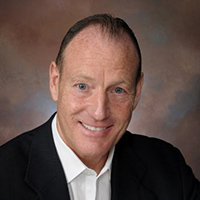Consider Using RMDs to Buy Life Insurance
If you don't need the income, this strategy can help you create more wealth to leave your loved ones.


Profit and prosper with the best of Kiplinger's advice on investing, taxes, retirement, personal finance and much more. Delivered daily. Enter your email in the box and click Sign Me Up.
You are now subscribed
Your newsletter sign-up was successful
Want to add more newsletters?

Delivered daily
Kiplinger Today
Profit and prosper with the best of Kiplinger's advice on investing, taxes, retirement, personal finance and much more delivered daily. Smart money moves start here.

Sent five days a week
Kiplinger A Step Ahead
Get practical help to make better financial decisions in your everyday life, from spending to savings on top deals.

Delivered daily
Kiplinger Closing Bell
Get today's biggest financial and investing headlines delivered to your inbox every day the U.S. stock market is open.

Sent twice a week
Kiplinger Adviser Intel
Financial pros across the country share best practices and fresh tactics to preserve and grow your wealth.

Delivered weekly
Kiplinger Tax Tips
Trim your federal and state tax bills with practical tax-planning and tax-cutting strategies.

Sent twice a week
Kiplinger Retirement Tips
Your twice-a-week guide to planning and enjoying a financially secure and richly rewarding retirement

Sent bimonthly.
Kiplinger Adviser Angle
Insights for advisers, wealth managers and other financial professionals.

Sent twice a week
Kiplinger Investing Weekly
Your twice-a-week roundup of promising stocks, funds, companies and industries you should consider, ones you should avoid, and why.

Sent weekly for six weeks
Kiplinger Invest for Retirement
Your step-by-step six-part series on how to invest for retirement, from devising a successful strategy to exactly which investments to choose.
For years, you contributed diligently to your 401(k) plan at work, enjoying the convenience, the lovely employer match and the knowledge that, as you made your contributions to the plan, it reduced your taxable income.
Then you watched your earnings grow, tax-deferred.
Each and every dollar remained in your account, at work for you, enlarging your retirement nest egg. It was a great deal for you, but not such a great deal for lawmakers who have an insatiable appetite for tax revenue.
From just $107.88 $24.99 for Kiplinger Personal Finance
Become a smarter, better informed investor. Subscribe from just $107.88 $24.99, plus get up to 4 Special Issues

Sign up for Kiplinger’s Free Newsletters
Profit and prosper with the best of expert advice on investing, taxes, retirement, personal finance and more - straight to your e-mail.
Profit and prosper with the best of expert advice - straight to your e-mail.
Congress wants you to save money for retirement, and tax relief is a great motivator. But no tax relief is open-ended. Eventually, we must all "render unto Caesar."
Thus, required minimum distribution (RMD) rules were established.
In essence, RMD rules mandate that once someone turns 70½ years old, he or she must begin drawing an income from their qualified-plan assets. (There are a few exceptions, but generally speaking, most plans are subject to RMD mandates.) This income is considered ordinary income and is subject to taxation. And the penalty for not taking them is severe—50% of the untaken RMDs.
There is an IRS formula that is used to calculate each year's exact RMD percentage. Although unique to each individual, generally speaking, for someone who is in their early to mid-70s, an RMD is roughly 4% of all qualified-plan assets. So, if someone owned $500,000 in qualified-plan assets, they would be required to draw about $20,000 in annual income.
For most retirees, RMD mandates are not a concern, as they always intended to use those assets to produce retirement income.
But some retirees don't need the money. They have enough income being generated from other sources. So, what can they do?
Take, for example, Jim. He had owned his own business and contributed to qualified plans at work. Once he retired, he sold his business for quite a large sum of money and simply didn't need the RMD income he was required to take when he turned 70½.
Still, Jim's RMDs were about $30,000 per year, and his overall tax rate was roughly 30%. Given those financial parameters, Jim's RMDs left him with about $20,000 per year. He decided to accumulate the payments in certificates of deposit, thinking he would leave the money as an additional inheritance to his children. This all sounded great —but was it the best way to go?
Another option: Jim could have redirected the $20,000 a year into a guaranteed premium universal life insurance policy, with a death benefit that would be substantially greater than years of accumulated RMDs. Because his health was good, life insurance was a viable path to consider. In the end, Jim could have qualified for $650,000 in life insurance death benefits, proceeds that would be paid tax-free to his beneficiaries.
Then, Jim could have established an irrevocable life insurance trust and moved ownership of his life insurance policy into the trust. If after 11 years of annual premium payments to the trust, Jim died, he'd leave $650,000 of life insurance proceeds to his beneficiaries, subject to the trust mandates. Over the course of 11 years, Jim would have made a total of $220,000 of premium payments to create $650,000 of wealth.
By redirecting unneeded RMDs into life insurance, you too can use this strategy to create more wealth for your heirs. Of course, it may not be the right move for everyone, but this certainly illustrates that by being creative about RMDs, you can make your retirement strategy more efficient.
Gerard (Gerry) Dougherty is the founder and president of Boston Independence Group Inc. He is an Investment Adviser Representative and a licensed insurance professional. He hosts a weekly radio show called "Uncomplicated Money" and recently published his first book, Uncomplicated Money: Retirement Is Within Reach.
Kim Franke-Folstad contributed to this article.
Profit and prosper with the best of Kiplinger's advice on investing, taxes, retirement, personal finance and much more. Delivered daily. Enter your email in the box and click Sign Me Up.

Gerry Dougherty is the founder and president of Boston Independence Group Inc. He is an Investment Adviser Representative and a licensed insurance professional. He has a bachelor's degree in economics from the University of Massachusetts at Amherst and holds a certificate in Financial Management and Leadership from The American College and Pennsylvania State University. He hosts a weekly radio show called "Uncomplicated Money" and recently published his first book, Uncomplicated Money: Retirement Is Within Reach.
-
 How Much It Costs to Host a Super Bowl Party in 2026
How Much It Costs to Host a Super Bowl Party in 2026Hosting a Super Bowl party in 2026 could cost you. Here's a breakdown of food, drink and entertainment costs — plus ways to save.
-
 3 Reasons to Use a 5-Year CD As You Approach Retirement
3 Reasons to Use a 5-Year CD As You Approach RetirementA five-year CD can help you reach other milestones as you approach retirement.
-
 Your Adult Kids Are Doing Fine. Is It Time To Spend Some of Their Inheritance?
Your Adult Kids Are Doing Fine. Is It Time To Spend Some of Their Inheritance?If your kids are successful, do they need an inheritance? Ask yourself these four questions before passing down another dollar.
-
 This Is How You Can Land a Job You'll Love
This Is How You Can Land a Job You'll Love"Work How You Are Wired" leads job seekers on a journey of self-discovery that could help them snag the job of their dreams.
-
 Have You Aligned Your Tax Strategy With These 5 OBBBA Changes?
Have You Aligned Your Tax Strategy With These 5 OBBBA Changes?Individuals and businesses should work closely with their financial advisers to refine tax strategies this season in light of these five OBBBA changes.
-
 A Financial Plan Is a Living Document: Is Yours Still Breathing?
A Financial Plan Is a Living Document: Is Yours Still Breathing?If you've made a financial plan, congratulations, but have you reviewed it recently? Here are six reasons why your plan needs regular TLC.
-
 Your Guide to Financial Stability as a Military Spouse, Courtesy of a Financial Planner
Your Guide to Financial Stability as a Military Spouse, Courtesy of a Financial PlannerThese practical resources and benefits can help military spouses with managing a budget, tax and retirement planning, as well as supporting their own career
-
 3 Steps to Keep Your Digital Data Safe, Courtesy of a Financial Planner
3 Steps to Keep Your Digital Data Safe, Courtesy of a Financial PlannerAs data breaches and cyberattacks increase, it's vital to maintain good data hygiene and reduce your personal information footprint. Find out how.
-
 Here's Why You Can Afford to Ignore College Sticker Prices
Here's Why You Can Afford to Ignore College Sticker PricesCollege tuition fees can seem prohibitive, but don't let advertised prices stop you from applying. Instead, focus on net costs after grants and scholarships.
-
 'You Owe Me a Refund': Readers Report Challenging Their Attorneys' Bills
'You Owe Me a Refund': Readers Report Challenging Their Attorneys' BillsThe article about lawyers billing clients for hours of work that AI did in seconds generated quite a response. One law firm even called a staff meeting.
-
 Divide and Conquer: Your Annual Financial Plan Made Easy, Courtesy of a Financial Adviser
Divide and Conquer: Your Annual Financial Plan Made Easy, Courtesy of a Financial AdviserOverwhelmed by your financial to-do list? Split it into four quarters and assign each one goals that connect to the time of year. It could be life-changing.